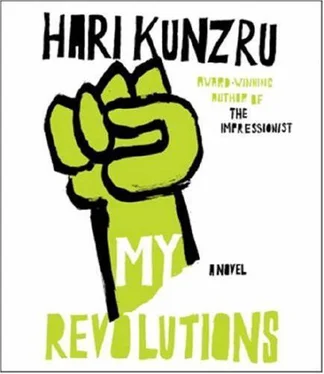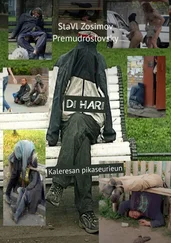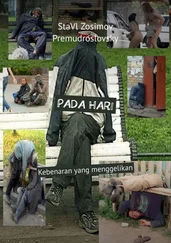I was in a Camden café with Sean when an unfamiliar face appeared on the television above the counter. The man was a chief
superintendent in the Met, an unremarkable-looking official in his fifties or sixties, with thick-framed glasses and graying combed-over hair. It was hard to catch what he was saying over the noise of the diners. He stood outside Scotland Yard and spoke to an interviewer in an unhurried, languorous voice, “educated” vowels pasted over a Black Country accent. . Entirely in hand. . the object of attention. . who sees anything suspicious is urged to come forward. . I examined him, this bomb squad detective, soothing a troubled situation with the balm of euphemism. Businesslike and professionally unemotional, a man who’d never understand that his own impersonality was at the root of our so-called crime, that we’d placed our bombs to destroy the rule of men who’d evacuated themselves of their humanity, functional men like him. The enemy.
The police acted quickly. Within the next day or two, we started hearing about busts. In Notting Hill detectives turned over every underground household in the area. During the next few weeks, it seemed as if every squat and commune in London got raided. Bizarre tales filtered back: a feminist bookshop in Stoke Newington whose entire stock was confiscated, an International Marxist Group organizer taken for questioning because he had fencing equipment in his room. We’d got what we wanted. Reality. War on the state. War, or at least talk. We were being talked about all over Britain.
the saturation of our minds with the poison of subversion has become so constant that we are no longer even aware you say we can support the aim while disagreeing on methods but they should think about the damage they’re causing to legitimate organizations trying to do real creative grassroots work opinions that once would have been thought frankly treasonous are openly as a tactic it’s useless actively promoted by at least thirty known Communist organizations and many thousands of unassociated
do these bombings ever connect anyone from different struggles? No. Pretty much the opposite. Have they moved any of the struggles (Ireland etc.) on to a higher level of awareness or activity? One is continually
confronted by (occasionally well-meaning but always blinkered and immature) there is cowboys and indians glamour and then there is getting real often members of the privileged middle classes, who seem to believe that by the endless repetition of slogans don’t seem to know the difference between some kind of improvement an analysis and that’s better than nothing they should consider the effects/ ineffectiveness of what slightest criticism of their reasoning, let alone the suggestion that they might be fellow travelers with totalitarianism, is met by denunciations of the most hysterical end up busted or worse in the general crackdown only the most closed of closed minds could have perpetrated the latest outrage in London. The bombing of an important economic target and familiar landmark should be roundly condemned by all who have z wonder if the people doing these acts of so-called armed struggle ever opened up wide discussions with other militants? further proof, if proof were needed, that a climate exists in this country that might best be described as a terrorist has Britain’s best interests at heart a bomb, said Lenin penetration by subversives of the trade unions and shop floors has led to widespread industrial strife and demoralization we lost leaflets, copying equipment, stencils. And they took our membership list, diaries, personal papers, etc. the unprincipled exploitation of largely imaginary grievances by wreckers and state-subsidized layabouts threatens to undermine the values and ideals that we cherish as a nation exactly what they say they’re against but they’re provoking not soon to find ourselves minions of Moscow, we must meet the threat of the bombers with the utmost firmness and moral clarity
The only thing the commentators and letter-writers seemed to agree on was that we were wrong. We were mindless and evil. We were probably mad. I was shaken by the reaction — not by the condemnation, which I’d expected, but by the fact that most people seemed not to understand why we’d done it. I thought our action was so pure in motive and clear in intent that no one could fail to
understand it. I thought we were a spark. My expectations seem extraordinary to me now.
I tried to hide my disappointment from the others, but it came out as a bitter rant against our supposed fellow revolutionaries. Their reaction smelled, I said, like fear. Secretly they didn’t want anything to change. They were just having a good time playing Che and pushing policemen at demos. There was more, which I didn’t say, about my own fear — that we were the fools who’d believed, poor political Tommies, who’d charged over the top with nobody following.
We had supporters: no group like ours could exist in total isolation. Though we’d severed many of our connections with the overground Left, we had contacts, people who believed in the armed struggle and were prepared to help us with logistics, but we had no one to speak out in public. Our own words were still missing.
So it became real, our fight. Or did it? We were already floating free, as removed from the experience of the average worker as the diners in the restaurant at the top of the tower. After that, the insidious message of the spectacle — that nothing takes place, even for the participants, unless it’s electronically witnessed and played back — took us over. We thought we were striking a blow against it, the hypnotic dream show of fuckable bodies and consumer goods. Instead we fell into the screen. Our world became television.
* * *
Orange wallpaper. Nauseating swirls. Gummed eyes, sticky mouth and the sound of insistent knocking on the door. I pulled a sheet round me and went to answer it. Outside I found the landlady. “Mr. Carter is downstairs,” she told me, a look of pure hostility on her face. “You’re late.” Obviously I’d caused her some trouble.
Miles was waiting outside, slouched in the back of a large black Mercedes. The driver, a middle-aged Nigerian, greeted me politely. He was playing some kind of handheld computer game, which he put away in the glove compartment as I got in. Miles looked run down. He had bags under his eyes, patches of shaving rash on his chin.
“Have a nice time last night?” he asked peevishly.
“You look unwell.”
“So do you. Put this on.”
He handed me a tie, an old-fashioned item with some sort of crest repeated on a green background.
“What is it? Grenadier Guards? Old Wykehamists?”
“Just put it on. You look like you slept in that jacket.”
I knotted the tie round my neck.
“Fuck’s sake, you’re even scruffier now. Take it o,”
We inched through the morning rush hour, the driver lurching forward into each gap, then braking sharply. I opened the window, hoping the fresh air would make me feel less sick. Near Regent’s Park, Miles directed the driver to pull up outside a terrace of elegant Regency houses. A man was waiting for us, pacing up and down on the corner, his hands jammed into the trouser pockets of a gray suit. He was in his late twenties or early thirties, with floppy blond hair and a scattering of freckles on his face, looks that would have been charmingly boyish were it not for the crude jaw and the unfriendly gray eyes he passed over me as he opened the front
passenger door. He had what is euphemistically termed an athletic build, a square head rooted in a thick neck, shoulders that strained against the fabric of his jacket as he settled himself in his seat.
“Good morning, Mr. Carter,” he said, in a public-school accent. He didn’t introduce himself to me. Miles shot a significant look in my direction. Through my hangover I smiled back. I felt I’d achieved something. We’d come to the edge of civility, the point beyond which force would be used. I’d pushed him thus far, at least.
Читать дальше












